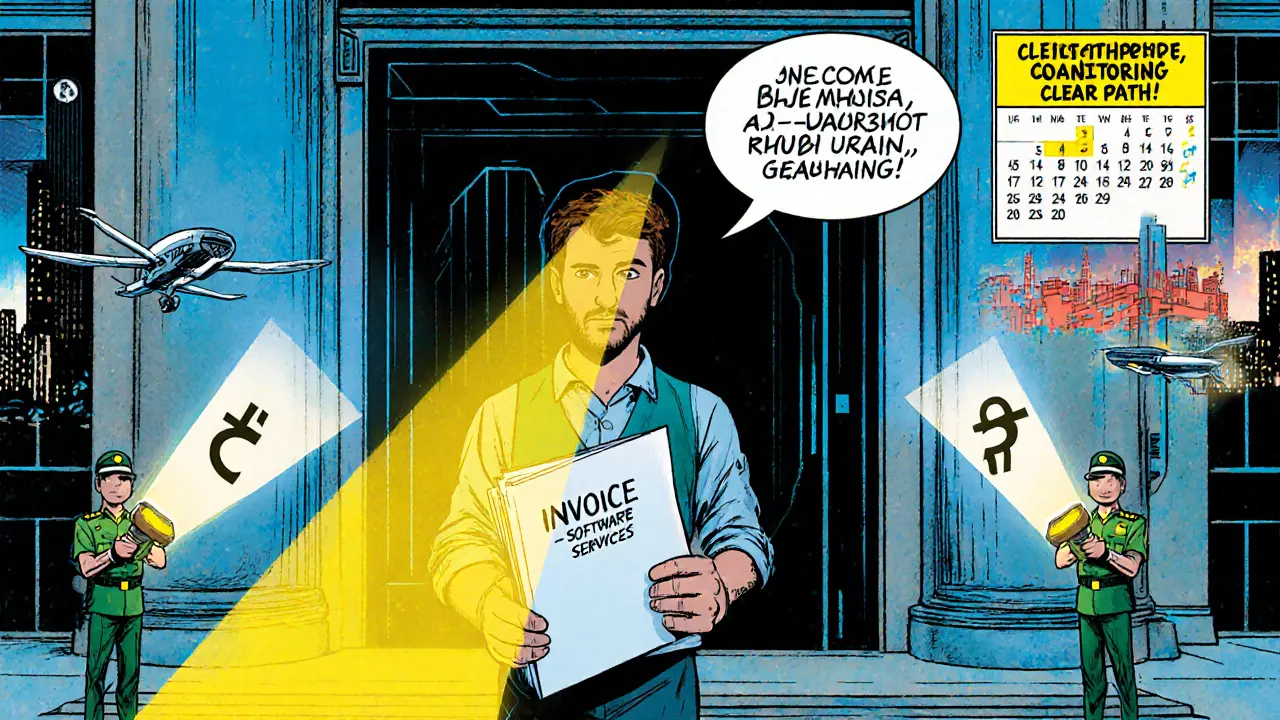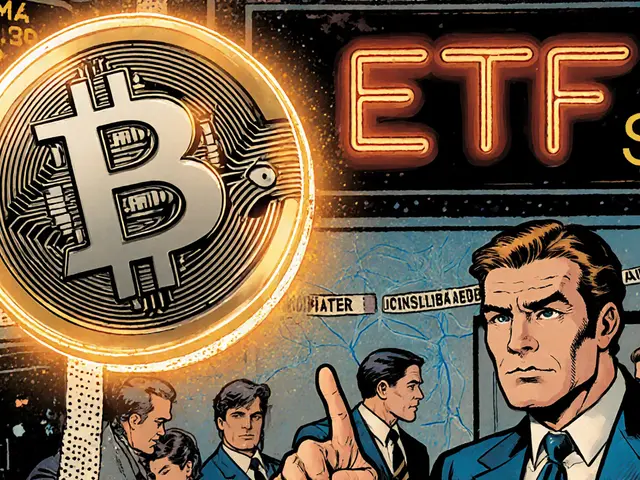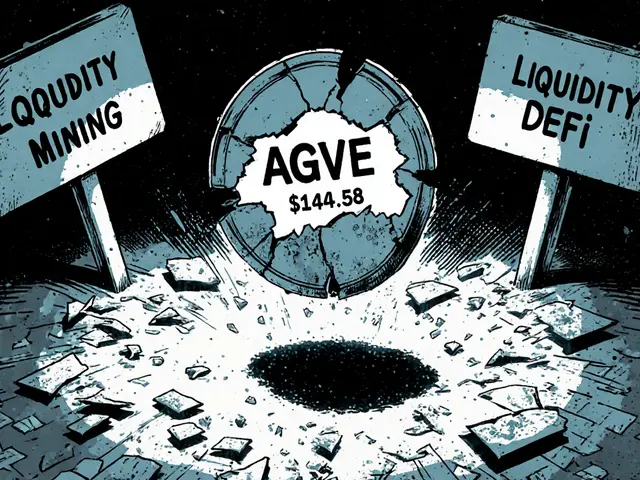
Crypto Transaction Alert Checker
Ever wondered why your Egyptian bank suddenly asks for extra paperwork when you try to send money abroad? The answer often boils down to crypto‑related activity. Since the Central Bank of Egypt (Central Bank of Egypt the country's monetary authority that sets banking rules) tightened its stance in 2020, banks have been forced to build heavy‑duty monitoring systems. Below is a plain‑English walkthrough of the legal backdrop, what banks actually look for, and how the whole thing affects everyday customers.
Key Takeaways
- Banking Law No. 194 of 2020 makes unlicensed crypto activity a criminal offense.
- The Financial Regulatory Authority the watchdog that receives suspicious transaction reports now receives a steady stream of crypto alerts.
- Banks use specialised compliance tech to flag transfers to known exchanges like Binance.
- Customers can still buy crypto on foreign platforms, but banks may freeze or ask for justification.
- Future enforcement is likely to get stricter, with more AI‑driven monitoring on the way.
1. The Legal Backbone: Banking Law No. 194 of 2020
Prior to 2020, Egypt’s approach to digital money was vague-official warnings floated around, but there was no concrete law. That changed when the parliament passed Banking Law No. 194 of 2020 a statute that criminalises the issuance, trading, and promotion of cryptocurrencies without a central‑bank licence. The law does three things that matter to you:
- It requires every bank to obtain a confirmed licence before offering any crypto‑related service.
- It forces banks to monitor transaction streams for signs of crypto purchases or conversions.
- It mandates reporting suspicious activity to the Financial Regulatory Authority, which can then launch investigations.
Failure to comply can lead to hefty fines or even criminal prosecution for the institution and its staff.
2. How Banks Detect Crypto‑Related Transfers
Today’s monitoring systems are a mix of rule‑based filters and machine‑learning models. Here’s a quick look at what triggers a red flag:
- Destination address checks: Transfers to wallets or banks that have been identified as crypto exchange gateways (e.g., Binance, Bitget, Rain) are automatically flagged.
- Pattern analysis: Multiple small outgoing payments to the same foreign bank within a short window often indicate a “coin‑mixing” strategy.
- Peer‑to‑peer platform signals: Payments to services that advertise P2P crypto trading in Egypt raise suspicion.
- Transaction sequencing: A large inbound transfer followed quickly by an outbound transfer to an exchange suggests conversion activity.
When any of these signals fire, the bank’s compliance team runs a manual review. If the review can’t verify a legitimate business purpose, the transaction is either held or reported to the FRA.

3. The Tech Stack Behind the Scenes
Building a monitoring engine from scratch is costly, so most Egyptian banks partner with global compliance vendors. The typical architecture looks like this:
- Data ingestion layer: Real‑time capture of SWIFT, local ACH, and card‑transaction feeds.
- Screening engine: Runs the rule‑based filters mentioned earlier.
- Machine‑learning model: Trained on historic transaction data to spot emerging crypto‑evading techniques.
- Case management system: Logs alerts, assigns investigators, and tracks resolutions.
- Reporting module: Formats SARs (Suspicious Activity Reports) for the FRA.
Implementation timelines vary, but most banks need 6‑12 months to go from pilot to full roll‑out, depending on existing IT infrastructure.
4. What This Means for Everyday Customers
If you’ve ever tried to move money to a foreign exchange, you’ve probably felt a sudden “extra verification” request. That’s the compliance engine doing its job. Here are some practical tips to avoid hassle:
- Use clear descriptions: State the purpose of the transfer (e.g., "payment for software services"). Vague notes like "investment" invite scrutiny.
- Keep supporting documents: Contracts, invoices, or receipts make it easier for the bank to prove the transaction is legitimate.
- Avoid round‑trip transfers: Sending money abroad only to receive it back minutes later looks like crypto layering.
- Consider non‑bank channels: Some Egyptians use e‑wallets that are less tightly tied to the CBE, but these come with their own risks.
Be aware that even if you use a foreign exchange that’s officially blocked, the bank can still freeze the outbound wire until you provide a satisfactory explanation.
5. Egypt’s Position Compared to the Region
While Egypt tightens the reins, its Gulf neighbours are experimenting with regulated crypto zones and even Central Bank Digital Currencies (CBDCs). Saudi Arabia and the UAE have launched sandbox programmes that let licensed firms offer limited crypto services under supervision. Egypt’s approach, however, stays firmly in the “no‑license, no‑play” camp, mainly because policymakers fear capital flight and terrorist financing.
That regional contrast shows why Egyptian banks invest heavily in detection tools: they must prevent leakage of capital to more permissive markets while staying compliant at home.
6. Looking Ahead: 2026 and Beyond
The latest warning from the FRA on 12May2025 singled out a surge in online ads promising high crypto returns. The message was clear-regulators will crack down harder if the market keeps growing.
Expect three trends to shape the next year:
- AI‑enhanced monitoring: Vendors are rolling out deep‑learning models that can detect even obfuscated crypto transactions.
- Stronger cross‑border data sharing: Egypt is signing information‑exchange agreements with other central banks, making it easier to trace funds that hop through multiple jurisdictions.
- Potential regulatory shift: If political pressure mounts, we might see a limited licensing framework for "crypto‑friendly" banks, similar to the UAE’s model. Until then, the status quo remains strict.
For now, the safest play is to treat any crypto‑related transfer as a high‑risk activity in the eyes of your bank.
| Year | Authority | Key Action |
|---|---|---|
| 2018 | Central Bank of Egypt | First public warning about unlicensed crypto trading |
| 2019 | Central Bank of Egypt | Clarified that only unlicensed platforms would be restricted |
| 2020 | Parliament (Banking Law No. 194) | Criminalised unlicensed crypto issuance and trading |
| 2023 | Central Bank of Egypt | Renewed public warning; emphasized lack of investor protection |
| 2025 | Financial Regulatory Authority | Targeted crackdown on crypto advertising; warning on terrorist‑financing risks |

Frequently Asked Questions
Is it illegal for an Egyptian citizen to own Bitcoin?
Ownership itself isn’t a criminal act, but any buying, selling, or promoting of crypto without a CBE licence is prohibited. The law focuses on the activity, not the mere possession.
What happens if my bank freezes a transfer?
The bank will ask for documentation proving the transfer’s legitimate purpose. If you can’t provide it, the funds may be held indefinitely or reported as suspicious to the FRA.
Can I use a foreign exchange like Binance from Egypt?
Technically you can access Binance’s website, but any related bank transaction will trigger the monitoring engine. Expect extra scrutiny or possible holds.
How do banks differentiate between legitimate foreign payments and crypto‑related ones?
They look at destination, frequency, and pattern. Regular business invoices with clear contract references pass, while transfers to known exchange wallets or with vague notes raise alerts.
Will Egypt ever create a licensing framework for crypto?
A limited framework isn’t impossible, but current political and economic pressures favour a strict stance. Watch for any parliamentary bills after the 2026 elections.






There are 15 Comments
Shanthan Jogavajjala
The integration of AML rule‑sets with SWIFT gateways creates a deterministic signal chain; any outbound payload flagged for crypto‑exchange destinations triggers an automated SAR escalation.
Ayaz Mudarris
It is noteworthy that the regulatory matrix established by Law No. 194 mandates a bifurcated compliance architecture, wherein the data ingestion layer must interface with both domestic ACH and international SWIFT streams to ensure holistic coverage.
Irene Tien MD MSc
Ah, the grand tapestry of Egyptian crypto surveillance – a masterpiece of bureaucratic paranoia stitched together with threads of fear, suspicion, and a dash of theatrical drama.
First, imagine a world where every modest transfer to a “friend” in Cairo is secretly examined under a microscope of AI, as if the banks are auditioning for the role of Big Brother in a dreary dystopia.
Second, the authorities have decided that any mention of the word “crypto” in a purpose field is equivalent to shouting “I’m hiding money!” at a crowded market – an absurd leap that would make even the most secretive spy blush.
Third, the over‑engineered rule‑based filters treat a single large outbound payment to a known exchange like a red traffic light, forcing a stop‑and‑question routine that drags you into an endless loop of paperwork.
Fourth, the “multiple small transfers” pattern is automatically equated with coin‑mixing, as if a handful of modest payments could possibly be part of a grand laundering scheme.
Fifth, the very notion that a customer might legitimately want to purchase Bitcoin for portfolio diversification is dismissed as a criminal act – a stance that ignores the global trend toward digital assets.
Sixth, the system rewards vague, generic descriptions, but punishes specificity, creating a paradox where the most honest explanation becomes a liability.
Seventh, the banks have adopted a silicon‑based watchdog that learns from past alerts, only to become an over‑zealous snitch that flags even the most innocuous activity.
Eighth, the Financial Regulatory Authority, flooded with SARs, must sift through a mountain of data, likely missing genuine threats while over‑penalizing curiosity.
Ninth, the whole operation signals a deep‑seated fear of capital flight, masquerading as consumer protection.
Tenth, the landscape is further complicated by regional rivals experimenting with sandboxes, making Egypt appear as the stubborn child refusing to join the playground.
Eleventh, the upcoming AI‑enhanced monitoring promises to be even more invasive, potentially reading the intent behind a transfer.
Twelfth, cross‑border data sharing agreements hint at a future where your money’s journey is tracked from Cairo to Zurich, then to Dubai, and back again, all under the watchful eye of inter‑governmental spies.
Thirteenth, the possibility of a limited licensing framework teases hope, yet remains a distant mirage.
Fourteenth, the practical advice to use clear descriptions is sound, but it does little to alleviate the underlying dread of being flagged for simply wanting to explore new financial horizons.
Fifteenth, in the end, the Egyptian banking system’s approach to crypto feels less like regulation and more like a cautionary tale about how fear can drive technology into the service of control rather than protection.
kishan kumar
One might contemplate the epistemological implications of a compliance framework that, while ostensibly safeguarding monetary integrity, simultaneously constructs a hyper‑real simulation of risk where the mere specter of digital assets triggers existential dread within the ledger. It is, in essence, a performative gesture masquerading as fiscal prudence :) .
Anthony R
Wow, this is really detailed,; I appreciate the effort,; the breakdown of the tech stack is especially helpful,; thank you for sharing.
Cindy Hernandez
For anyone looking to stay compliant, it helps to keep a folder of all invoices, contracts, and receipts related to foreign transfers. When you provide a clear business purpose and supporting documents, the bank’s review process moves much faster and you avoid unnecessary holds.
Karl Livingston
I totally get how frustrating those extra verification steps can be. From my own experience, a brief note saying "software development services for XYZ Corp" along with the contract saved me from weeks of back‑and‑forth with the compliance team.
Robert Eliason
Thsi is a coomon ssue, banks ful of king of regulatoin, but thier sysytems ar not that good, bettr ask for help.
mark gray
Just make sure your transfer description is clear and you have the paperwork ready – that’s the best way to keep things smooth.
Alie Thompson
It is morally indefensible for any financial institution to impede legitimate economic activity based on unfounded fears of crypto. By treating crypto‑related transfers as inherently suspicious, banks betray their fiduciary duty to facilitate lawful commerce. Citizens deserve transparency and fairness, not a blanket stigma that discourages innovation and punishes curiosity. Upholding such draconian measures erodes trust in the banking sector and runs counter to the principles of a free market economy.
Samuel Wilson
Remember, the key to navigating these checks is preparation: have your invoices, clear purpose statements, and be ready to answer any follow‑up questions from the compliance team. This proactive approach often results in quicker approvals.
Rae Harris
Honestly, the whole crackdown feels overblown. If you’re just moving money for a legit reason, the banks could chill out and trust their customers a bit more rather than acting like every transaction is a crypto conspiracy.
Danny Locher
Stay calm and keep your paperwork tidy. Most banks just want to make sure everything checks out, so a little organization goes a long way.
Emily Pelton
Seriously, folks, stop ignoring the red flags! Your vague descriptions and half‑baked justifications are exactly what the compliance bots are designed to catch-use proper documentation or face the consequences.
Donald Barrett
If you think the banks are being unreasonable, think again. They’re protecting the system, and anyone who complains is just being naive about the real dangers of unregulated crypto flows.
Write a comment
Your email address will not be published. Required fields are marked *